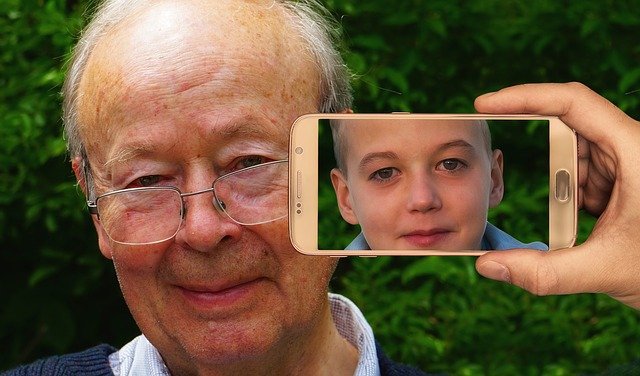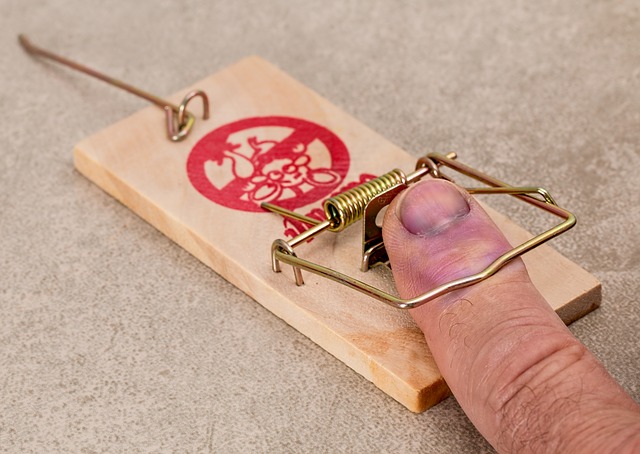When learning a new language, it’s a common practice to rely too much on our native languages. We feel more confident when something is familiar. It has happened to me many times. I see a familiar word in a foreign language and then try to use it the way I would in my language.
English and French share a lot of vocabulary. Sometimes it’s only the pronunciation that changes, but at other times, it’s more complicated than that. We have to be careful with these words if we want to master the French language. That’s why today we will talk about some of the most common French false friends in English. Allons-y!
What Are False Friends?
For starters, we need to understand this concept. What are false friends? To answer this question, let me ask you something first. Have you ever seen familiar words in other languages that turned out to mean something different from your native language? Well, those are false friends.
False friends are words in different languages that have identical or similar spellings but different meanings. For example, let’s take a look at the word bras. Bras means arm in French, but it’s the plural form of bra (female underwear) in English.
False friends are known as faux amis in French. You might also have heard about cognates. That’s another term commonly used. All false friends are false cognates, but not all cognates are false friends. There are true cognates as well.
Why Are They Important?
You may be wondering why it is important to know about the existence of false friends. Well, for starters, you might be saving yourself from embarrassing situations. For example, French President Macron called the Australian Prime Minister’s wife “delicious” during a public speech. In French, a woman who is good, charming, or delightful can be described as délicieuse. While this word can also mean delicious in English, you have to use it carefully. Context is crucial.
Below is the video of that embarrassing moment.
The Australian Prime Minister seemed to ignore it, but imagine what would’ve happened at a different place with no cameras or other people present.
While some people will understand what you’re trying to say and even correct you, not everyone will understand. Your luck might be different. To be on the safe side, it’s better to be sure about the meaning of the words you use when speaking.
False Friends Examples
Okay, without much further ado, here are some of the most common French false friends in English:
Attendre/Attend

Attendre (FR) 
Attend (ENG)
Now, imagine you have a date with a French girl, but you’re running late. On your way to the restaurant, you receive a text message that reads, “Je t’attends“. You’re confused. What does she mean? Well, it means she is waiting for you! You’d better hurry!
attendre ≠ attend
attendre = wait
Blessé/Blessed

Blessé (FR) 
Blessed (ENG)
You run toward the door, but someone opens it at that very moment and hits your face. Then you head to the table while covering your nose, and your date asks, “Tu es blessé?” Is she blessing you or what? No, she’s simply asking if you’re hurt.
blessé ≠ blessed
blessé = hurt/wounded
Pain/Pain

Pain (FR) 
Pain (ENG)
You sit down and then the waiter comes to your table. You’d like a glass of wine and some bread, but the waiter doesn’t seem to understand the last part of your order. “Oh, he’d like some pain,” chimes in your date. You then realized you had been pronouncing it wrong! Oh, well…
pain ≠ pain
pain = bread
Envie/Envy

Envie (FR) 
Envy (ENG)
You start talking about your jobs, and it turns out your date has a fantastic job with a good salary and lots of vacation time. You’d like to say you envy her (in a good way, of course) and say “J’ai envie de toi“. The girl blushes. After an uncomfortable silence, she explains to you that you just told her you desired her. Oops!
envie ≠ envy
envie = usually avoir envie de, which means feel like (doing)
Préservatif/Preservative

Préservatif (FR) 
Preservative (ENG)
It’s time to order the main course. You’ve been looking after your health, so you try to avoid preservatives. It’s just natural to ask if the dish you want has any preservatives in it, right? So you ask the waiter, “Y-a-t-il des préservatifs?” Your date bursts out laughing and corrects conservateurs. You were asking if there were any condoms in the food. Yikes!
préservatif ≠ preservative
préservatif = condom
Sale/Sale

Sale (FR) 
Sale (ENG)
You excuse yourself to go to the restroom. There is only one booth with a sign that reads SALE on the door. Hmm, is it on sale? You ignore it and open the door. What do you find inside? A dirty toilet. Gross!
sale ≠ sale
sale = dirty
Excité/Excited

Excité (FR) 
Excited (ENG)
You go back to your table and try to retake the conversation. You then find out that both of you like the same band, which by the way, will perform in town next weekend. “Je suis très excité!” you say. The girl looks puzzled for a moment and then says, “Oh, you mean you’re excited!” Why is French so complicated!?
excité ≠ excited
excité = sexually aroused
Introduire/Introduce

Introduire (FR) 
Introduce (ENG)
You don’t know what else to say. Think fast! Oh, right, tell her you would like to introduce some friends to her. Then you say, “J’aimerais t’introduire des amis“. The girl holds a laugh and says “Présenter pas introduire!” You start thinking your French is not that good after all.
introduire ≠ introduce
introduire = penetrate, insert
Déception/Disappointment

Déception (FR) 
Deception (ENG)
After a long night, you finally get to your apartment. Your roomie asks you how the date went and you say it was a deception. But how did she deceive you?” he asks. You then explain that she didn’t deceive you. You meant it was a disappointment. Enough French for today.
déception ≠ deception
déception = disappointment
Conclusion
There are many more French false friends we could talk about, but the post would never end. What about you? Have you ever been a victim of false friends?
False friends are tricky and easy to confuse with words in English and other languages. You will have to memorize them to avoid embarrassing situations like the one we saw above. Poor guy, right?
Which false friends would you add to the list? Let me know in the comments section below. Au revoir, les amis!


My son goes to a French immersion school. When he was younger, he would teach me how to pronounce common French words, with all those tongue rolling, lol!
I will never understand French sentences. Even punctuations are different.
Your article is an eye-opener and funny! I loved reading those French false friends, and learning a lot, as well.
Thanks,
Marita
Hi, Marita,
Oh, yes! Some French sounds are hard to imitate. It takes a lot of practice to master them.
I’m glad you liked this article. Why don’t you give French another try? Or some other language? I think it’s just a matter of finding a language that suits you better.
Let me know how it goes.
Enrique
I envy those who can readily pick up another language. I am certain there would be plenty of times I would make a goof if I were trying to speak another tongue. I had never heard of the term “false friends” but i am certain there are plenty of examples. I tried to learn a few languages, and came across a few false friends myself.
Hey, Carolyn,
I think we have all felt like that at one point or another, but it’s part of the process.
Which languages did you try to learn?
Enrique